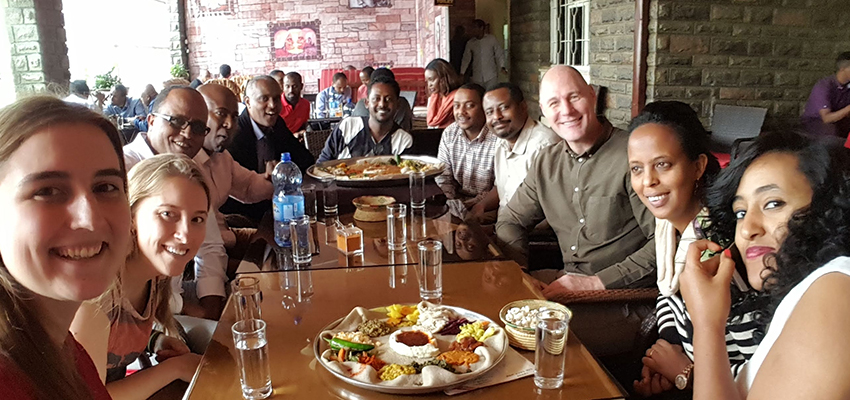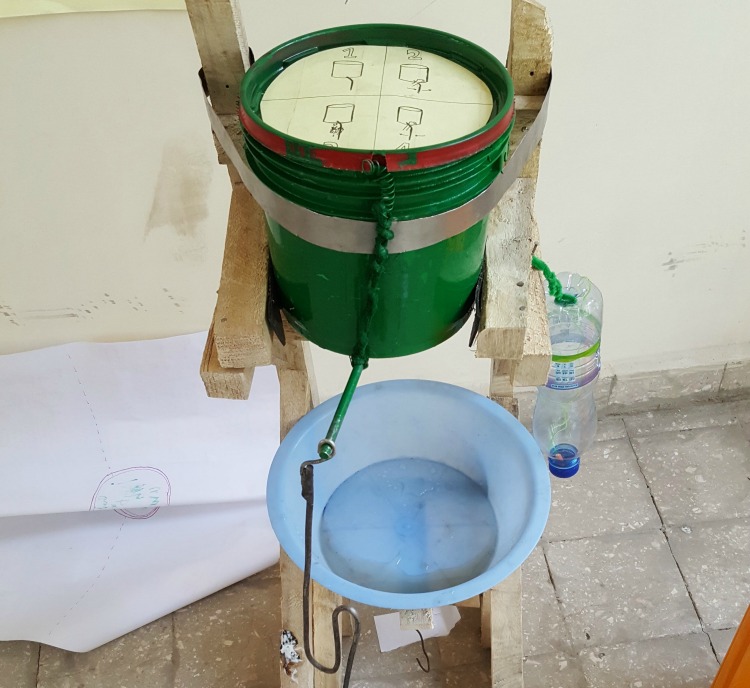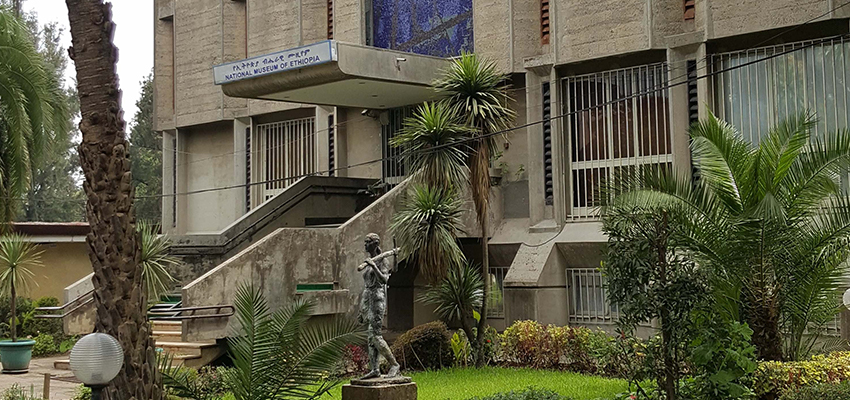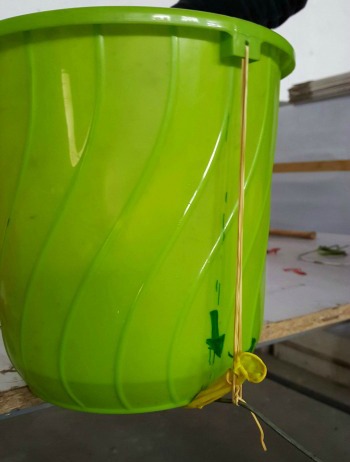
"It was rewarding to know that this product will move forward, but even more incredible to know that the basic design came from community members at the Summit in January; it wasn’t a product that MIT engineers designed and planned to sell in Ethiopia, but rather the product of a collaborative process with local designers (who may not know the word “design” but are designers nonetheless) in Hawassa and with its fruit benefitting local artisans and business owners."
For two weeks this July, Juliana Mitkiewicz and I worked with PSI Ethiopia in Addis Ababa to design a handwashing product that can be crafted and sold by local artisans.
The team
Juliana is working on her Ph.D. in Sustainable Energy Systems at the University of Porto in Portugal, and she was a visiting researcher at MIT D-Lab for the past year. I just finished my Bachelor’s Degree in Architecture Studies here at MIT, and I’ll be pursuing my Master’s in Civil & Environmental Engineering and working as a teaching assistant at D-Lab in the fall. We are both passionate about using technology and simple but innovative solutions to work with communities in the developing world to improve their lives.
PSI, Population Services International, is a US-based international nonprofit that has offices in over 50 countries. It focuses on bringing health products and solutions, especially in the areas of sanitation, HIV prevention, family planning, and diarrhea prevention, among others, to communities in the developing world. On this trip, we worked with Monte Achenbach, Solen Kebede, and Ayatam Simeneh, and other staff members, at the office of PSI Ethiopia in Addis Ababa. They provided insight into local culture and handwashing practices, as well as the feasibility of incorporating a handwashing product like ours into their existing workshops and business structure.
Laying the groundwork
PSI’s Ethiopia branch has been working with D-Lab since the beginning of 2018. In January, Juliana and I, along with several other MIT students and design facilitators from around the world, participated in a WASH (Water, Sanitation, and Hygiene) Summit in the southern city of Hawassa. This was a joint effort between MIT and PSI Ethiopia, with strong support from the Ethiopian Ministry of Health and USAID. At the Summit, we had six teams comprised of locals (health extension workers, masons, students at the technical school, and community members) and foreigners (a design facilitator and an MIT student), each focusing on a different problem in the Ethiopian WASH sector. My team collaborated to pinpoint issues preventing locals from washing their hands regularly (which often leads to diarrhea and other sometimes-fatal diseases) and to design a solution that addresses those issues. We came up with a bucket that uses a spring-pipe cleaner-metal dowel system to contain the water until the metal dowel is moved. It reduced the amount of water that flows because the waterhole was much smaller than the opening of the typically-used jerry can, thus saving water. It also allowed for hands-free operation, which reduces contamination.

During this follow-up trip, Juliana and I continued to develop the prototype that my team worked on in January. I had spent time during the spring semester redesigning it to get it ready for the market, but it’s difficult to know what materials and tools will be available in Ethiopia while only working in our well-stocked D-Lab shop. Our aim for the trip was to discover what materials are readily available in Ethiopia, build a working prototype from those materials, and create a business model for building and distributing these products.
Exploring Addis and Learning to be Flexible
We planned to spend one of our weeks during this trip in Hawassa, working at the technical school where the Summit was held in January, to use their mechanical shop. Being in a politically volatile country like Ethiopia, however, means our plans were subject to change. Several times, we had flights booked to Hawassa, but violence erupting there precluded us from going each time. We ended up spending the entire two weeks in Addis. For me, as a person who loves plans and hates when they change, this upset in our plans was a challenge. It taught me the importance of flexibility, and that things will work out, even if it means checking out and into the same hotel three times in two weeks and never making it to your final destination.
Apart from giving us time to brainstorm business solutions and meet with people at the PSI office, the extra time in Addis gave me the opportunity to explore. I got to see a cultural show, eat lots of Ethiopian and international food, and see Lucy at the National Museum of Ethiopia. I met up with two Ethiopian friends that I know from Cambridge and spent time with some of Juliana’s Brazilian friends. Ayatam, from the PSI office, graciously showed us his city from a local’s perspective, and we got to watch the World Cup together and explore different restaurants and parts of the city.

We finally figured out how to collect the necessary tools and materials in the PSI warehouse in Addis. While PSI workers unloaded boxes of water filtration supplies, Juliana and I used local materials to build and rebuild the handwashing prototype in an iterative design process. We struggled to completely block the waterhole, a problem I hadn’t had in Cambridge, but after trying several solutions we discovered that balloons are locally available and, if tied correctly, can sufficiently stop water from leaking. Our final prototype is pictured below:

Moving Forward
Although this trip was not what we had planned, we still completed the prototype and were able to work with PSI staff to decide how to distribute and sell these handwashing products. PSI will integrate training in building these products into their community workshops with local artisans, who in turn can reproduce our product and sell it for a profit. It was rewarding to know that this product will move forward, but even more incredible to know that the basic design came from community members at the Summit in January; it wasn’t a product that MIT engineers designed and planned to sell in Ethiopia, but rather the product of a collaborative process with local designers (who may not know the word “design” but are designers nonetheless) in Hawassa and with its fruit benefitting local artisans and business owners.
A special thank-you to MIT D-Lab for providing the funds to send us to Ethiopia (twice!), and to the staff at PSI Ethiopia for hosting us and guiding our design process. This trip and this innovative handwashing solution would not have been possible without the MIT-PSI WASH Summit in January and the many months of follow-up from it. Apart from the work, thanks to everyone at PSI for making our trip enjoyable and giving us a better taste of Ethiopian culture, food, and hospitality.

